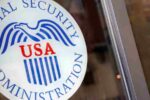The Internal Revenue Service (IRS) has reported a sharp rise in audits in 2025 as the tax filing deadline draws near.
As part of a broader plan to fight fraud and boost government revenue collection, this program aims to identify discrepancies in tax returns and enhance compliance.
Taxpayers need to be especially alert since the IRS is employing data analysis and artificial intelligence to find anomalies.
Certain people and companies are more likely to be audited than others, so it’s important to know who is being looked at and how to get ready to prevent legal issues or financial penalties.
Who Will Have a Higher Chance of an IRS Audit in 2025?
Audits in industries with a high potential of tax evasion or documentation problems are given priority by the IRS. Michael Steffany, a tax lawyer, claims that the following taxpayer groups are more at danger of an audit:
- People who make over $10 million annually.
- tax returns that show differences between official tax records and stated income.
- companies that operate internationally or have intricate tax systems.
- Earned Income Tax Credit (EITC) recipients, as a result of a high proportion of documentation errors.
- Being chosen for an audit does not always indicate misconduct. While some cases are chosen at random, others have financial connections to people or companies who have already undergone an audit.
Luxury Car Recall: Headlights Found to be Too Bright for Road Safety
Important Risk Elements and Requests for IRS Documents
The IRS uses sophisticated algorithms and AI-driven models to scan millions of tax returns for anomalies. The following warning signs increase the likelihood of an audit:
- discrepancies between official tax records and stated income.
- unusual deductions or exorbitant costs in some areas.
- On different tax returns, make duplicate dependent claims.
- financial ties to previously audited people or businesses.
Taxpayers who are chosen for an audit receive a formal IRS notification outlining the necessary paperwork, which could include:
- W-2 forms, 1099s, and other earnings statements are examples of income records.
- Support for deductions and expenses: bank statements, invoices, and receipts.
- Financial reports and brokerage statements are examples of real estate and investment records.
- Contracts and pertinent financial disclosures are examples of loan and property documentation.
CalWORKs March 2025: When Will Your Food Stamp Benefits Be Deposited?
Ways to Lower Your Risk of an IRS Audit
Tax professionals advise doing the following to reduce audit risk and stay out of trouble:
- Report income truthfully so that it corresponds with official tax records.
Don’t overstate your deductions; only include reasonable, properly reported costs. - For a minimum of three years, maintain well-organized records of your earnings, outlays, and deductions.
- To avoid further penalties, reply to IRS notifications as soon as possible within the allotted 30-day period.
Making sure tax returns are accurate is more crucial than ever in 2025 due to increasing IRS inspection.
Taxpayers should place a high priority on compliance, openness, and careful record-keeping as the agency uses AI more frequently to identify fraud in order to prevent expensive investigations and fines.







Leave a Comment